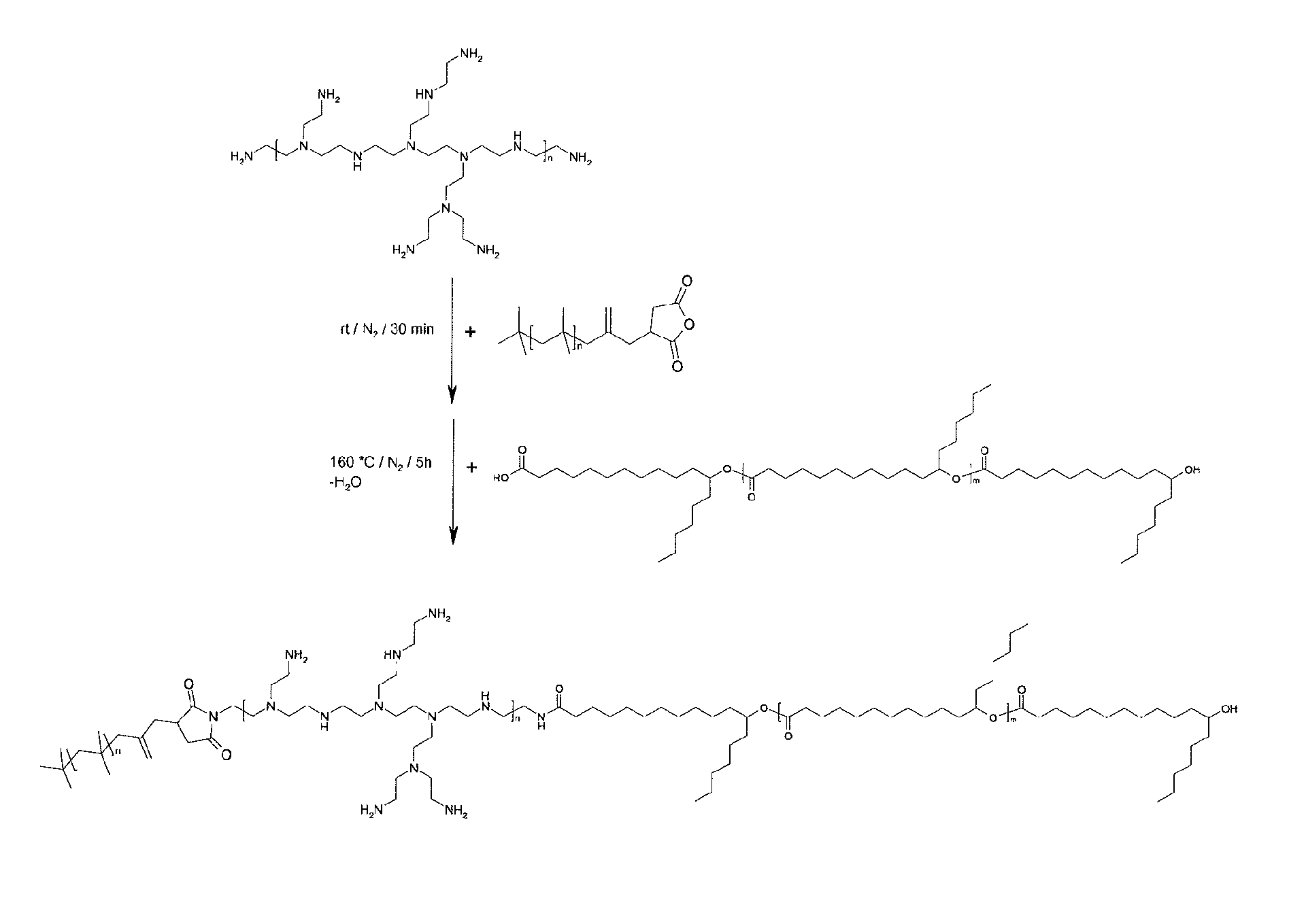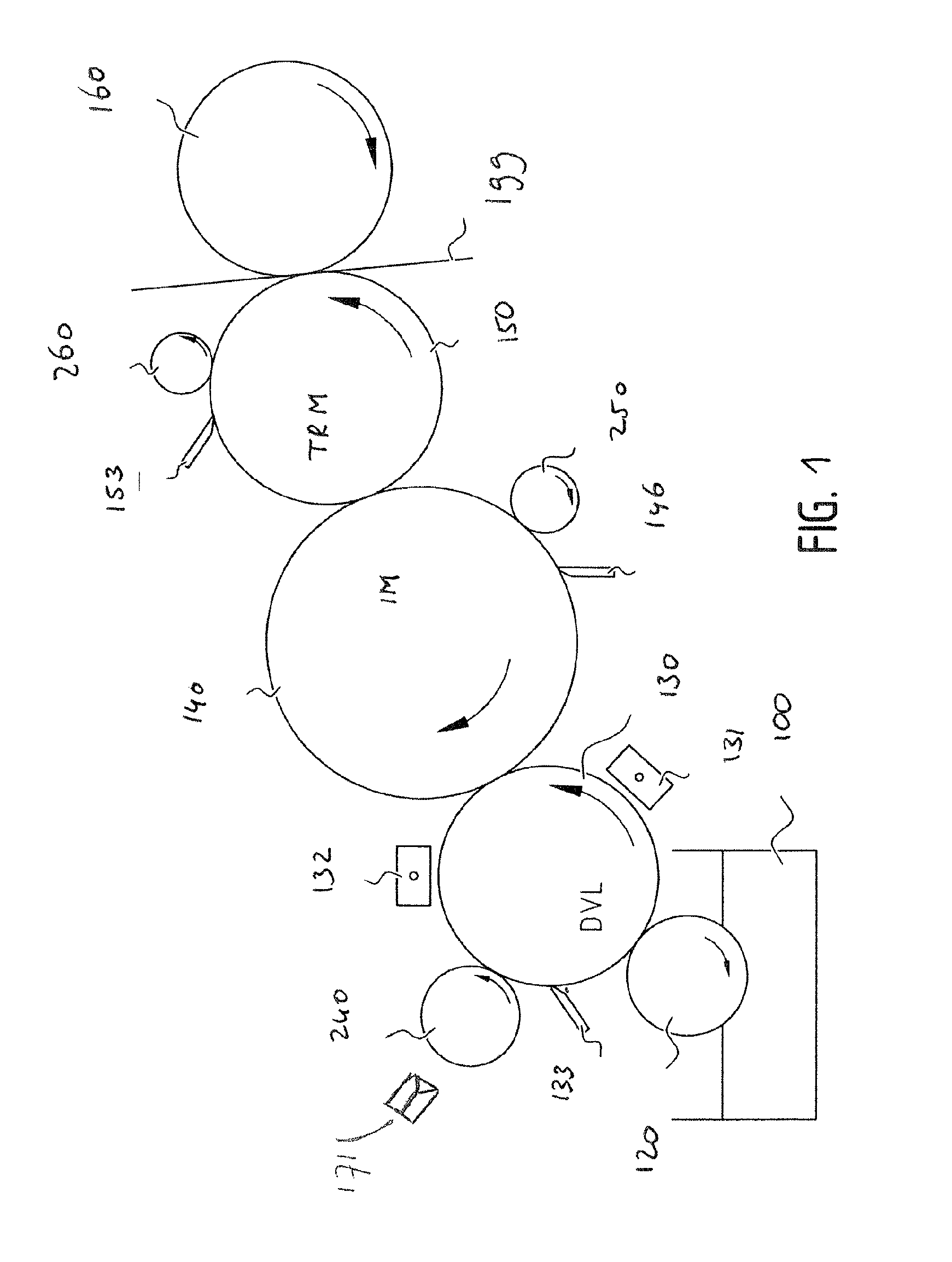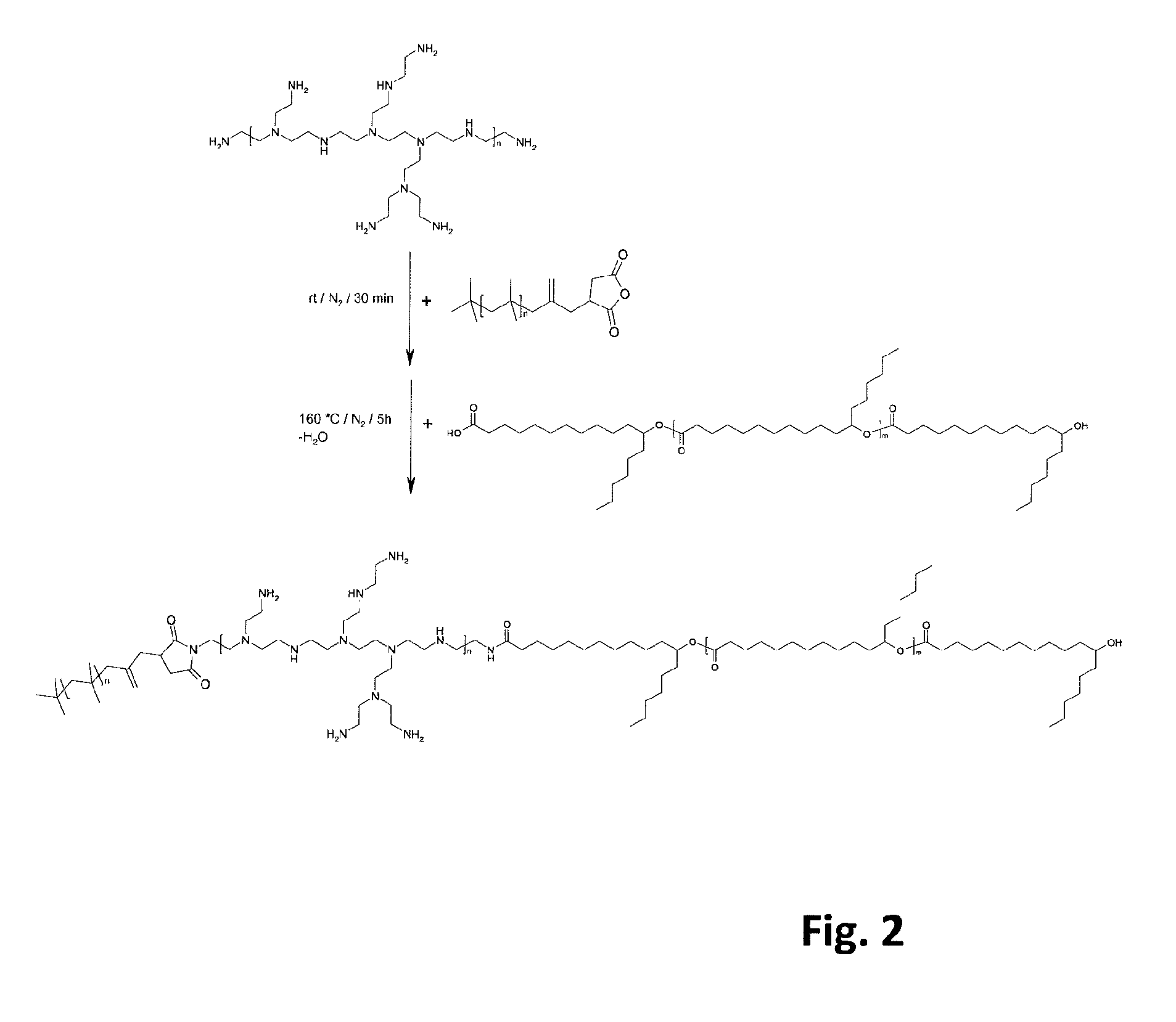Liquid toner dispersion and use thereof
a technology of liquid toner and dispersion, which is applied in the field of liquid toner dispersion, can solve the problems of liquid with a non-uniform distribution of marking particles, increase of the viscosity of the liquid toner dispersion, and stable liquid toner dispersion, and achieve the effect of degree of polymerisation
- Summary
- Abstract
- Description
- Claims
- Application Information
AI Technical Summary
Benefits of technology
Problems solved by technology
Method used
Image
Examples
synthetic example 1
Synthesis of Polyhydroxystearic Acid (PHSA)
[0058]In a 1 L flask equipped with a Dean-Stark apparatus and a reflux condenser, there are added 400 g of 12-hydroxyoctadecanoic acid (12-hydroxystearic acid), 1 ml titanium (IV) butoxide and 120 ml xylene. The reaction mixture is heated under nitrogen in an oil bath at 200° C., and refluxed for 30 h. The progress of the reaction can be monitored by the amount of separated water. The degree of condensation was determined by means of IR and titration. In the IR spectrum the carbonyl stretch ratio of the carboxylic acid and the ester is a measure of the degree of condensation. By means of titration, the acid value can be determined. In this example, 20 mg KOH / g was obtained, which is a value of 8 or 10 12-hydroxystearic acid (m=6-8) units and a weight-average molecular weight (Mw) of 2800 g / mol.
[0059]
[0060]Poly(hydroxystearic acid) with another degree of polymerisation and other fatty acid polymers may be prepared in analogue manner. General...
synthetic example 2
Coupling of Polyethylenimine (PEI) with 12-Hydroxystearic Acid (PHSA) and Polyisobutylene Succinic Anhydride (PIBSA)
[0061]10.0 g polyethylenimine (Mw 800) was mixed with 11.9 g PIBSA (Mw 950) and stirred at room temperature for 30 minutes under a nitrogen flow. The temperature was raised to 160° C. and 35.0 g PHSA (Mw 2800) was added. The mixture was further heated under a nitrogen flow for additional 5 hours at 160° C. After cooling an oily substance is obtained that can be used as such. The reaction equation is shown in FIG. 2.
Test Methods
[0062]The viscosity of the liquid developer dispersion and carrier liquid is measured with a Haake Rheostress RS6000 operated in shear rate sweep from 0.1 to 3000 l / s at 25° C. The instrument is equipped with a cone / plate geometry type C60 / 1° and the gap is set to 0.052 mm. The viscosity is measured, on the basis of the operation in shear rate sweep, at a value of 0.88 l / s. The measurements are carried out at the beginning and after the ...
PUM
 Login to View More
Login to View More Abstract
Description
Claims
Application Information
 Login to View More
Login to View More - R&D
- Intellectual Property
- Life Sciences
- Materials
- Tech Scout
- Unparalleled Data Quality
- Higher Quality Content
- 60% Fewer Hallucinations
Browse by: Latest US Patents, China's latest patents, Technical Efficacy Thesaurus, Application Domain, Technology Topic, Popular Technical Reports.
© 2025 PatSnap. All rights reserved.Legal|Privacy policy|Modern Slavery Act Transparency Statement|Sitemap|About US| Contact US: help@patsnap.com



